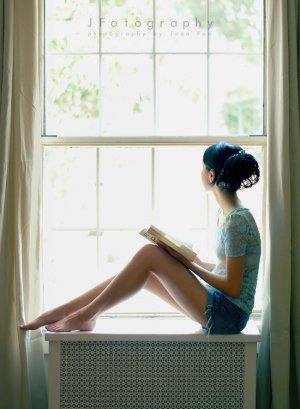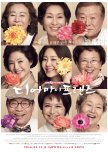In a sometimes overwhelming world of perfect faces and scripts that are best described as "meh," Dear My Friends stands out to me because it highlights real people. Real problems. It's proof that you don't need flawless visuals or idol actors to move an audience. It's proof that you don't need switched-at-birth reveals for breakfast and the white truck of doom for a late-night cocktail to create true angst and emotion.
Story:
This was a story of love, its inherent sacrifice, and a story of forgiveness. It was a story of friendship through the ages and family. I couldn’t watch it without relating to the story in some way. It was impossible.
Every character was written in a way that engaged my understanding and sympathy but tested me in all the right ways, as real people always do. For example, Kim Suk Kyoon, a crusty and cantankerous security guard that often took his wife for granted, was a product of a generation with bread-winning men that made all the important decisions and women who did most everything else. Would it be right for him to take all the blame for everything he did if he was raised a certain way? He tested me (a lot) and my modern views on women, but his character evolved with the story as it should. Just like every single one of the others, he made mistakes, he regretted, and he emerged at the end, embracing the truths of his life in a realistic way. Unlike some dramas, the characters in Dear My Friends didn't lose their personalities by the end of their journeys. They all had the same frustrating, lovable quirks that made them unique while they simultaneously accepted their true selves. That's good writing.
Dear My Friends handled tough subjects with a perfect combination of pragmatism and empathy while also blending in humor and heart. I very (very) rarely enjoy korean drama humor, but this was an exception. The writer wove in the usual drama tropes but simultaneously brought in atypical characters and situations to freshen them up or poke fun at them. For those of you curious about romance, there were several couples written into the story, young and old, and each of them had their own set of issues that fed into the main themes of the story.
The only gripe I had (if it could even be called that) was the lack of flashbacks, and I am still shocked that I felt that way. I HATE flashbacks because of how often they slow the pace of a story, but I wanted to get a better grasp of who the characters were before. It didn’t have to be every episode - just a little more for perspective and all that. But, to be honest, this is personal preference. The story didn’t HAVE to have them.
Acting/Cast:
Absolutely no complaints. These actors embodied their roles to the point that they imprinted themselves on my heart, flaws and all. I will forever remember their roles as if the characters were real people that I met at my local convenience store (in my dreams, where I live in South Korea, of course). That's the beauty of slice-of-life stories.
There wasn’t a standout performance, and I mean that in the best sense. Each actor supported the rest of the cast, and the audience got to reap the benefits of experiencing seasoned actors. I love a good newbie actor that wows me with unexpected talent, but sometimes I want to trust that I'm in good hands. And I was.
Music:
I will remember the intro music the most, and I might recall one or two songs from the drama. The OST won’t be something that I’ll obsessively listen to for months to come, though. Perhaps one day I will look back on the drama and get nostalgia goosebumps when I hear the theme song again, but it won’t be more than that.
Rewatch Value:
This is a good example of a lower rewatch value that proves the strength of the drama, rather than any weakness. I don’t need to obsessively rewatch this. Once again in a few years may do the trick, but the heartwarming rawness of the story will stay imprinted on my brain for a long time.
Vond je deze recentie nuttig?


























